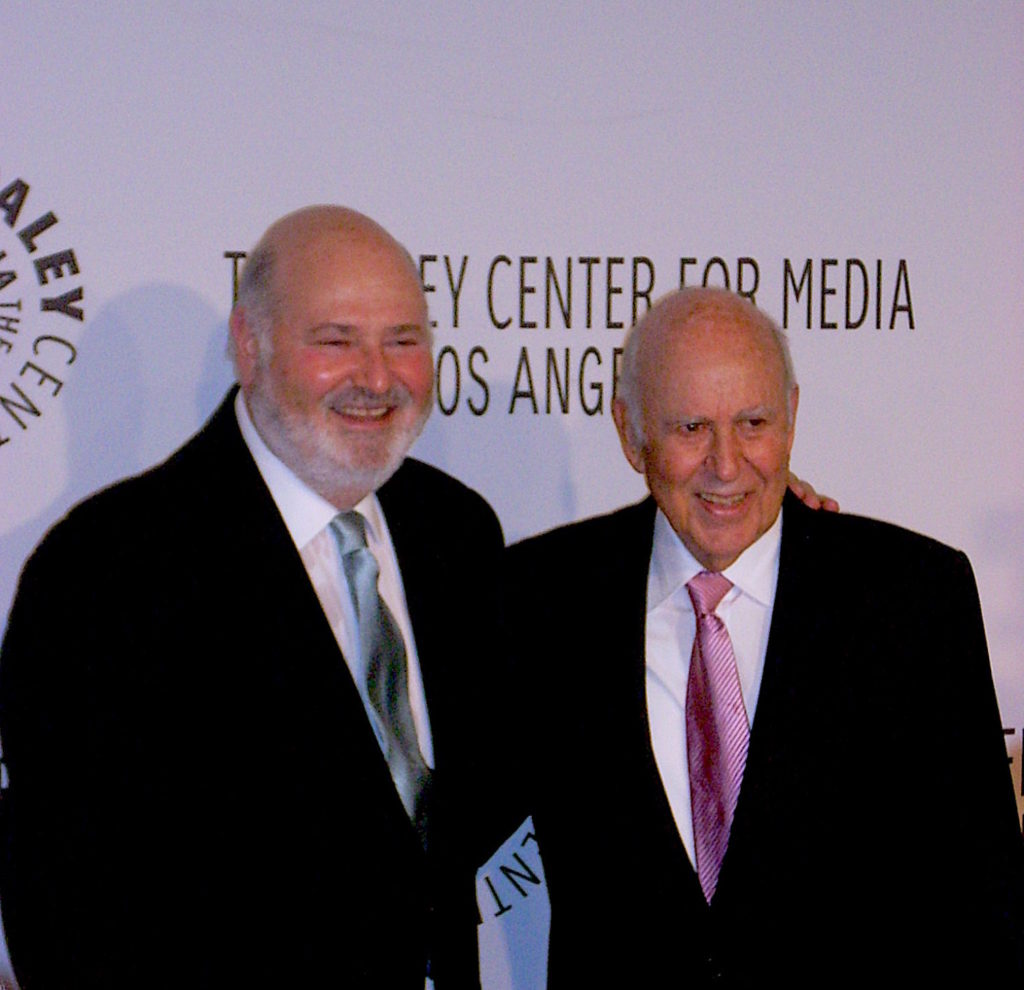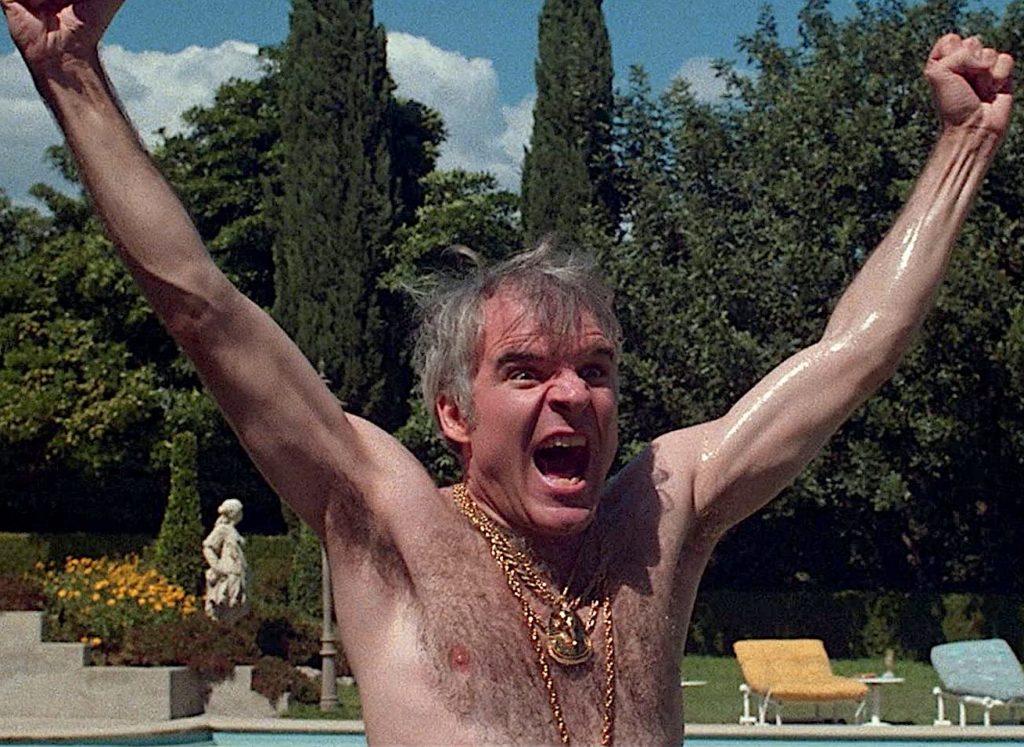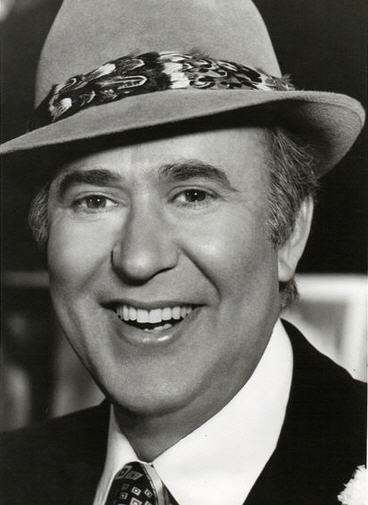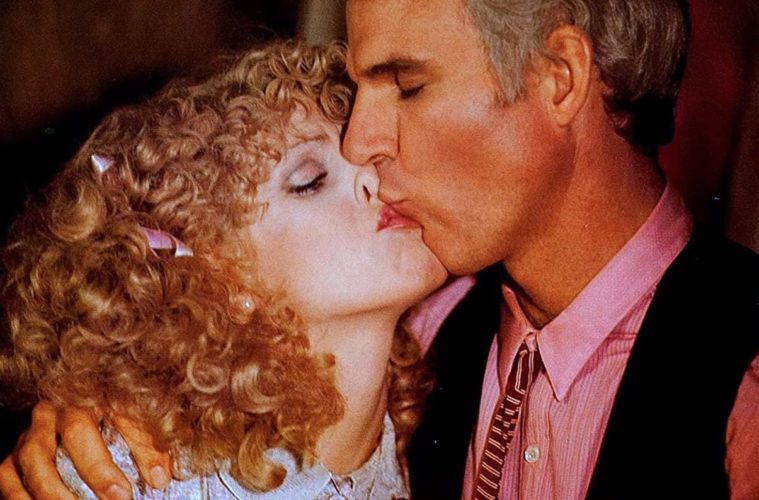Carl Reiner, one of the greatest comedic innovators of the last six decades, died on Monday, June 29 in his home in Beverly Hills, California. He was 98. Following his death, his son, director Rob Reiner wrote in a tweet, “Last night my dad passed away. As I write this my heart is hurting. He was my guiding light.” In many ways Reiner Sr. was a guiding light to everyone who loved comedy in one way or another.

(Wiki Commons/Kristin Dos Santos)
As an actor, writer, producer and director, Reiner was a part of group of Jewish comedians from the ’60s, including Mel Brooks and Sid Caesar, who shaped modern American comedy as we know it. Born in the Bronx, New York, in 1922, Carleton Reiner served in the Army during WWII. He discovered his love of theater and acting during his enlistment, entertaining fellow troops in the Pacific before they went to battle.
After returning home, Reiner immediately jumped into an acting troupe in New York and partook in a few plays. He first caught national attention as a versatile comedic presence in Your Show of Shows, alongside Sid Caesar, which ran from 1950-54. Considered the first manifestation of a television sketch show comedy, Your Show of Shows was also where Reiner started a prolific writing career, scribbling jokes alongside such luminaries as Neil Simon and Mel Brooks. It was around this time that Reiner and Brooks performed and recorded the first of six comedy albums called The 2000 Year Old Man. In the famed sketch, Reiner plays the straight man who interviews Brooks’ oldest man in the world. Brooks would answer questions about historical figures, saying that he dated Joan of Arc, although it didn’t go anywhere, or that William Shakespeare had “the worst penmanship.” The albums made Reiner and Brooks household names and both men remained best friends.
But it was The Dick Van Dyke Show which truly put Reiner on the map. Based on his experiences as a comedy writer on Your Show of Shows, The Dick Van Dyke Show is still considered one of the greatest sitcoms of all time, and garnered Reiner five Emmys as a writer and producer. “He’s not only been my mentor and good friend, but possibly the best comedy writer who ever lived,” Van Dyke said of Reiner in a 20015 NPR interview. After The Dick Van Dyke show ended in 1966, Reiner directed and wrote several plays, which played on Broadway. He then went on to star in a few feature films, including The Russians Are Coming and It’s A Mad, Mad, Mad World. After moving his family to Los Angeles in the late-Sixties, Reiner’s career switched from being in front of the camera to manipulating it behind the scenes.

THE JERK (Courtesy Universal Studios)
“I am not a bum. I’m a jerk. I once had wealth, power, and the love of a beautiful woman. Now I only have two things: my friends, and… uh… my thermos. Huh? My story? OK. It was never easy for me. I was born a poor black child. I remember the days, sittin’ on the porch with my family, singin’ and dancin’ down in Mississippi…”
The memorably deadpan first few lines of The Jerk are just a small sample of why it’s one of the greatest comedy films of all time. Although Reiner did a couple movies prior, The Jerk marked an unforgettable director/actor collaboration, with Reiner highlighting the comedic gifts of burgeoning movie star Steve Martin in such a way that it was almost the equivalent of Scorcese and DeNiro’s cinematic alliance. The mythic journey of the slow-witted but sweet, Nathan R. Johnson, (the adopted white child of a black family), The Jerk follows Johnson’s journey after leaving home to find his “special purpose,” discovering love, wealth and eventual heartbreak and impoverishment along the way. In addition to Martin’s fearless performance, The Jerk’s genius lies in Reiner’s directing, which is distinguished by his taut storytelling, swift pacing and an almost unforced, fluid comic timing. The movie didn’t score highly with critics at the time, but it’s now considered comic gold.

(Wiki Commons/Public Domain)
Reiner and Martin followed The Jerk with such unforgettable comedies like Dead Men Don’t Wear Plaid (1982), The Man With Two Brains (1983) and All of Me (1984). He also helmed 1987’s Summer School, now considered an ’80s teen cult comedy. The day after Reiner passed, Steve Martin tweeted, “Goodbye to my greatest mentor in movies and in life.”
In the last 30 years, Reiner continued writing, including a couple successful books, and even appeared in a few television shows and the Oceans 11 movie series. As of late, Reiner had taken to Twitter, not only revealing his lifelong belief in social justice — blasting Trump with some profound tweets — but also showcasing his comic breadth. Although the entertainment industry made him a household name, Reiner has always maintained that his family was the reason for his success. “Without a wife and child, show business means nothing,” he told The Boston Globe. He was married to singer Estelle Lebost for 64 years. She died in 2008. Together they had three children, Rob, Annie and Lucas Reiner. You might remember Estelle in the diner scene in When Harry Met Sally when she famously quipped, “I’ll have what she’s having.”
Celebrated by friends, family and fans alike, Reiner will always be remembered as a mild natured, affable performer with a hearty smile and kindly presence. But he will also be remembered as an old school, wise mensch with a wicked sense of humor. As featured in a 2012 episode of Jerry Seinfeld’s series Comedians in Cars Getting Coffee, he had it right until the end. As Seinfeld walks out of Reiner’s house in the episode, Reiner yells, “Hey Jerry… You know the difference between a Jew and a Frenchman? A Frenchman leaves without saying goodbye. A Jew says goodbye and never leaves.” Thankfully, with Reiner’s prolific film and TV work still out there to enjoy, he will certainly never leave us.
Advertising disclosure: We may receive compensation for some of the links in our stories. Thank you for supporting LA Weekly and our advertisers.

